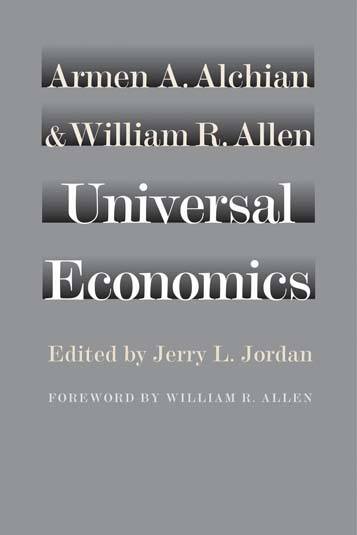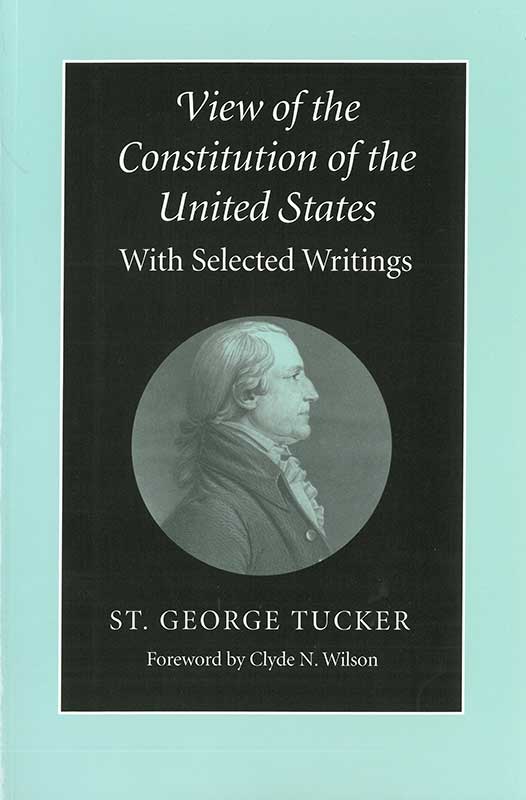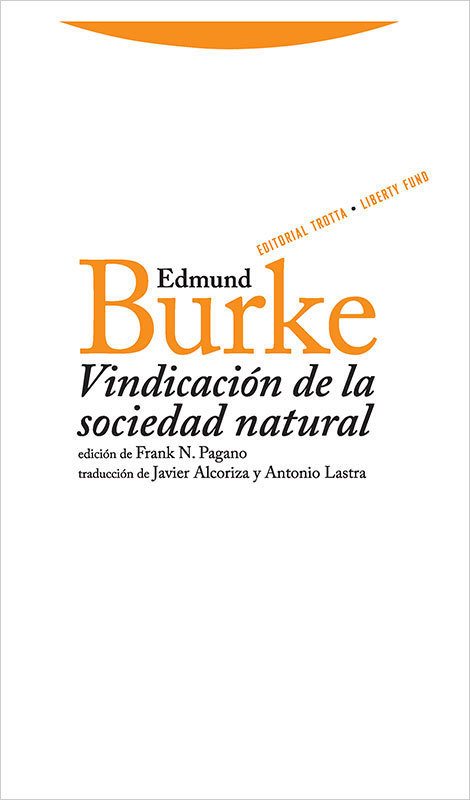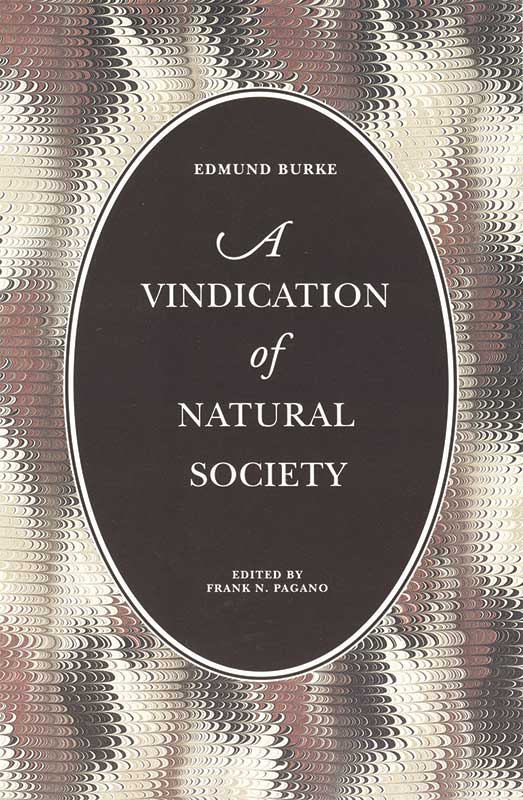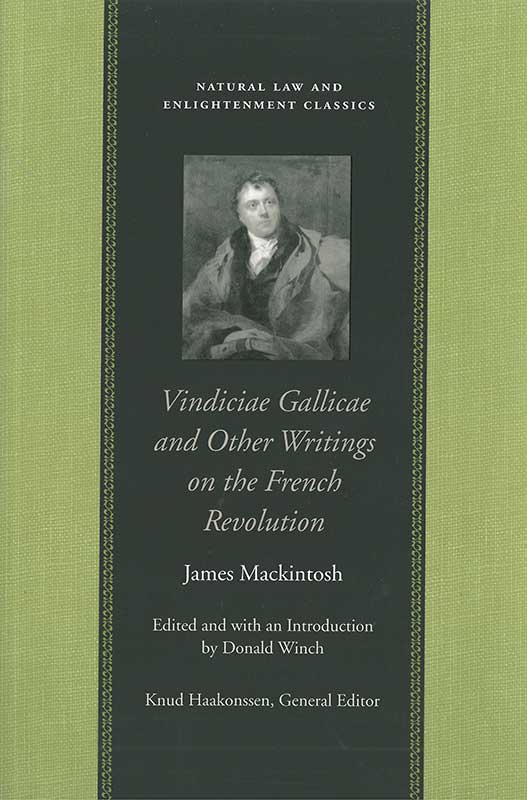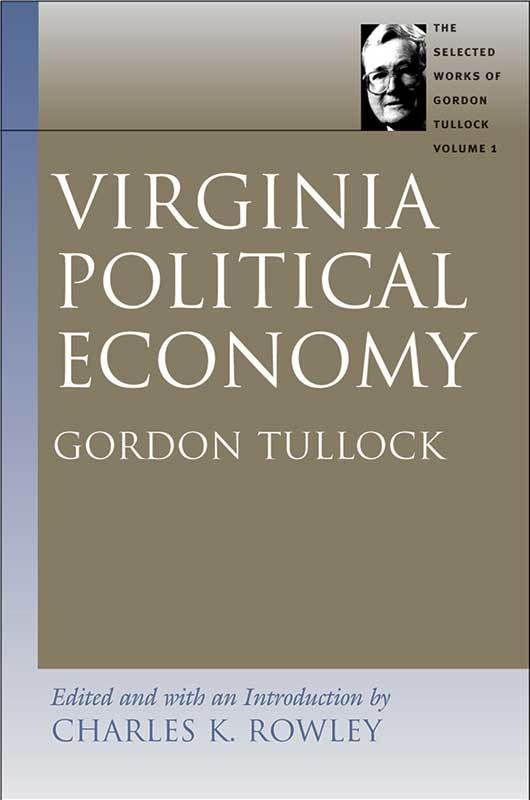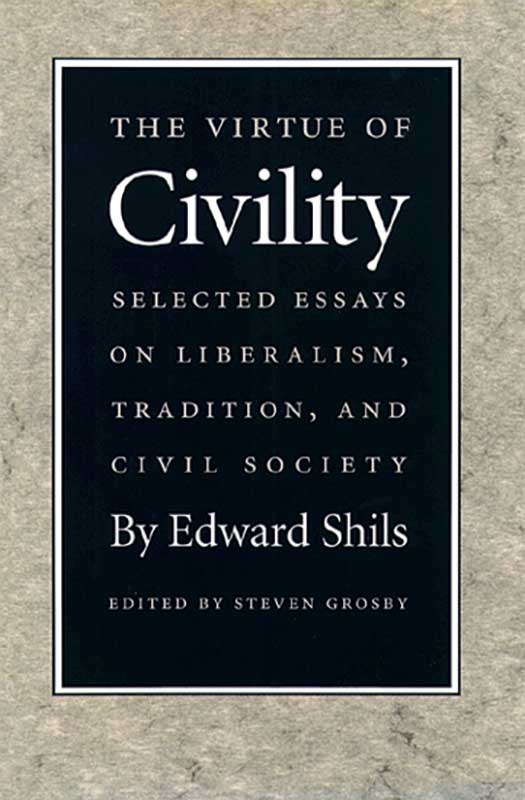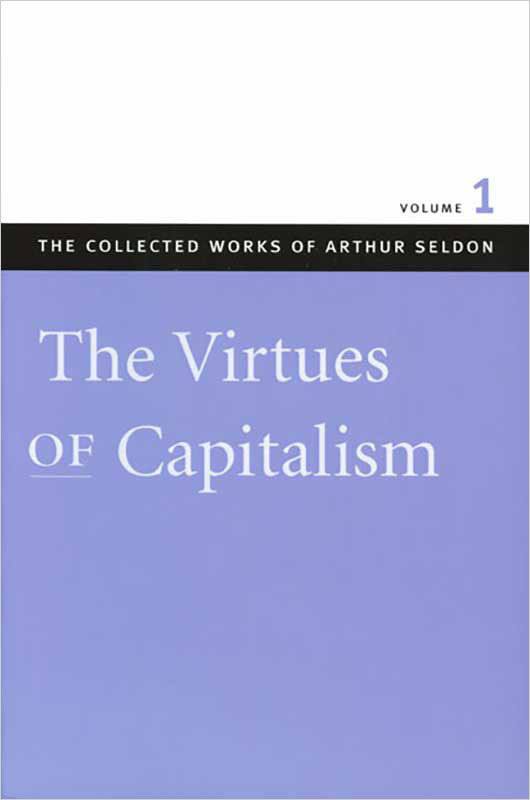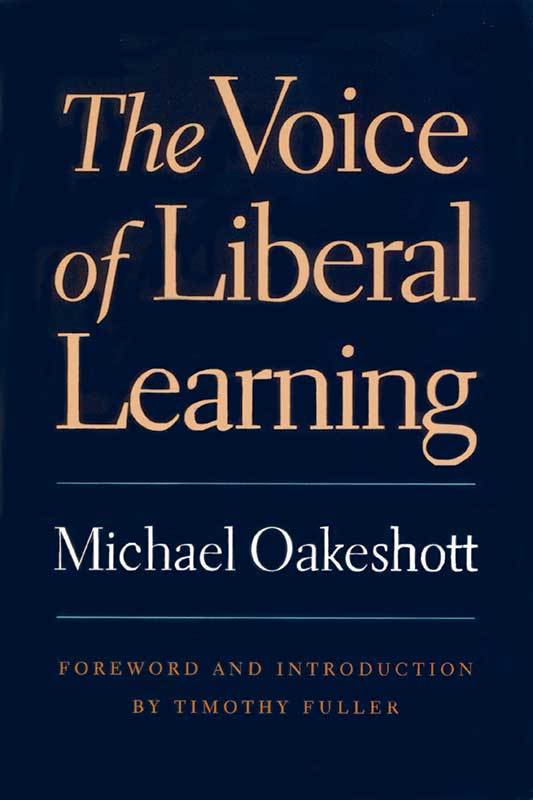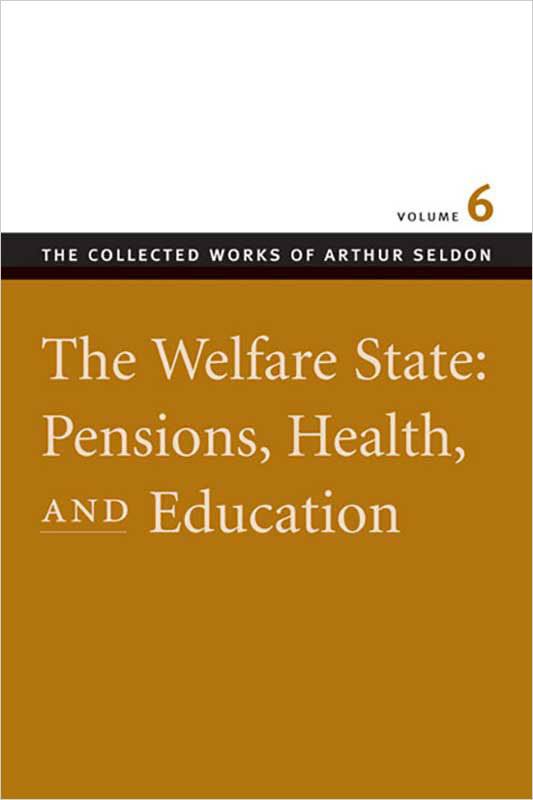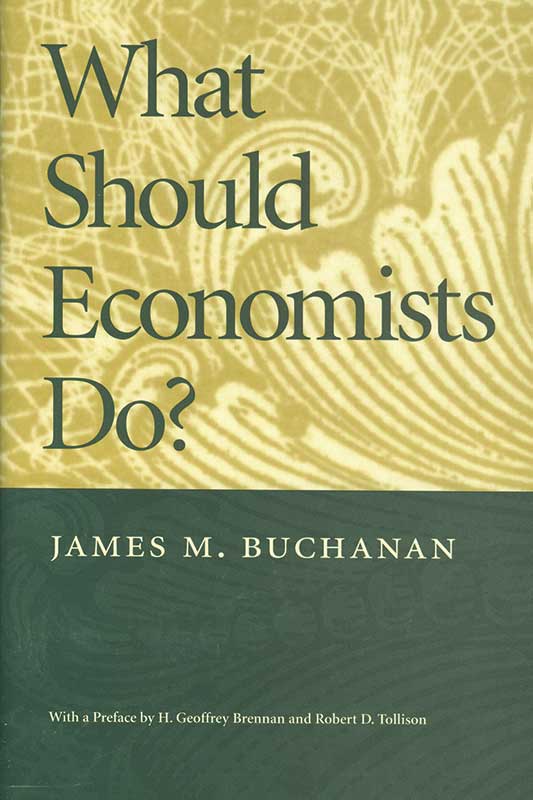Shop
-
Universal Economics
by Armen A. Alchian and William R. Allen
/ Learn More“No one has ever done price theory better than Alchian—that is, no one has ever excelled Alchian’s ability to explain the reason, role, and nuances of prices, of competition, and of property rights. And only a precious few—I can count them on my fingers—have a claim for being considered to have done price theory as well as he did it.”…
-
View of the Constitution of the United States
by St. George Tucker
/ Learn MoreSt. George Tucker’s View of the Constitution, published in 1803, was the first extended, systematic commentary on the United States Constitution after its ratification. Generations learned their Blackstone and their understanding of the Constitution through Tucker. Clyde N. Wilson is Professor of History and editor of The Papers of John C. Calhoun at the University of South Carolina.
-
Vindicacion de la sociedad natural
by Edmund Burke
/ Learn MoreEdición de Frank N. Pagano Traducción de Javier Alcoriza, Antonio Lastra La Vindicación de la sociedad natural, publicada anónimamente en 1756, señala el principio de la carrera literaria de Edmund Burke (1729–1797). En esta obra, el futuro adversario de los derechos del hombre y defensor de los derechos de los ingleses advierte los efectos de los pensadores de la Ilustración…
-
A Vindication of Natural Society
by Edmund Burke
/ Learn MoreThis is a new edition of Edmund Burke’s first work, originally issued anonymously in 1756 as a letter attributed to “a late noble writer.” In 1757 Burke produced a revised version with a new preface but still did not attach his name to the work. This Liberty Fund edition is based on the 1757 revision. The Vindication is a political…
-
Vindiciae Gallicae and Other Writings on the French Revolution
by James Mackintosh
/ Learn MoreVindiciae Gallicae was James Mackintosh’s first major publication, a contribution to the debate begun by Edmund Burke’s Reflections on the Revolution in France. The success of Mackintosh’s defense of the French Revolution propelled him into the heart of London Whig circles. Following the September 1792 massacres Mackintosh, along with other moderate Whigs, revised his opinions and moved closer to Burke’s…
-
Virginia Political Economy
by Gordon Tullock
/ Learn MoreEditor Charles Rowley calls Gordon Tullock “an economist by nature rather than by training.” Tullock attended a one-semester course in economics for law students at the University of Chicago but is otherwise self-taught. Tullock’s background has enabled him to analyze economic problems with an open mind and to deploy his formidable intellect in a truly entrepreneurial manner. Virginia Political Economy…
-
The Virtue of Civility
by Edward Shils
/ Learn MoreEdward Shils was one of the leading intellectual defenders of freedom in the twentieth century. In these nine essays, he explores the importance of civility and tradition to a free society. The essays’ significance is enormous, for Shils was one of the first and assuredly one of the most courageous writers to examine the nature of civility and civil society…
-
The Virtues of Capitalism
by Arthur Seldon
/ Learn MoreThe Virtues of Capitalism lays the foundation of his views and theories of capitalism and its alternatives. The first part, Corrigible Capitalism; Incorrigible Socialism, was first published in 1980. It explains why, Seldon believes, “private enterprise is imperfect but redeemable,” but the “state economy promises the earth, and ends in coercion to conceal its incurable failure.” The second part, Capitalism,…
-
The Voice of Liberal Learning
by Michael Oakeshott
/ Learn MoreBy 1989, when Michael Oakeshott’s Voice of Liberal Learning was first published by Yale University Press, books that held a negative view of education in the United States had garnered a remarkable amount of attention. Oakeshott’s approach to the subject is subtle, comprehensive, and radical—in the sense of summoning readers to the root of the matter. That root, Oakeshott believed,…
-
The Webster-Hayne Debate on the Nature of the Union
by Herman Belz
/ Learn MoreThe debates between Daniel Webster of Massachusetts and Robert Hayne of South Carolina gave fateful utterance to the differing understandings of the nature of the American Union that had come to predominate in the North and the South by 1830. To Webster, the Union was the indivisible expression of one nation of people. To Hayne, the Union was the voluntary…
-
The Welfare State: Pensions, Health, and Education
by Arthur Seldon
/ Learn MoreVolume 6 of The Collected Works of Arthur Seldon examines the failure of state-supported welfare programs to benefit the people most in need of help. The eight articles and one book in this volume encompass almost forty years of criticism of the welfare state. Seldon argues that the welfare state cannot, in the long run, solve the problem of poverty.
-
What Should Economists Do?
by James M. Buchanan
/ Learn MoreThis volume is a collection of sixteen essays on three general topics: the methodology of economics, the applicability of economic reasoning to political science and other social sciences, and the relevance of economics as moral philosophy. Several essays are published here for the first time, including “Professor Alchian on Economic Method,” “Natural and Artifactual Man,” and “Public Choice and Ideology.”…
60% OFF YOUR ENTIRE BOOK PURCHASE
Save up to 60% and get free shipping as part of our Holiday Sale. Visit our Promotions Page to learn more!
Offer expires January 31, 2026

